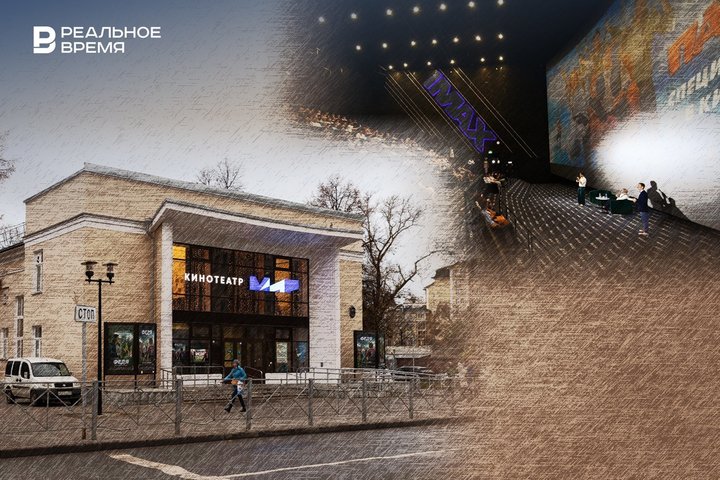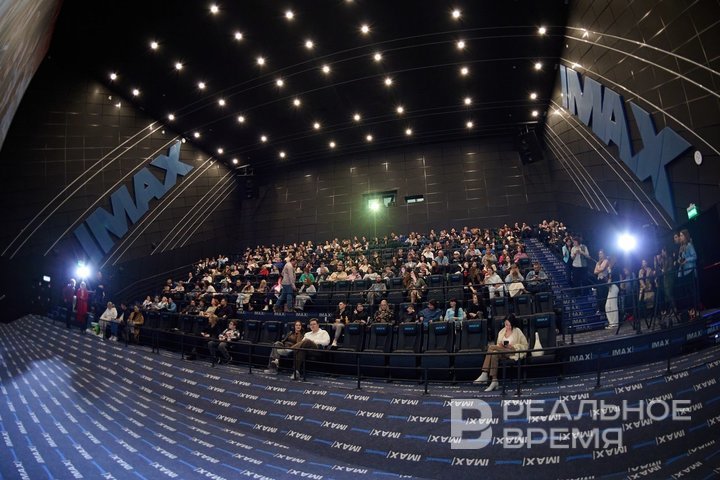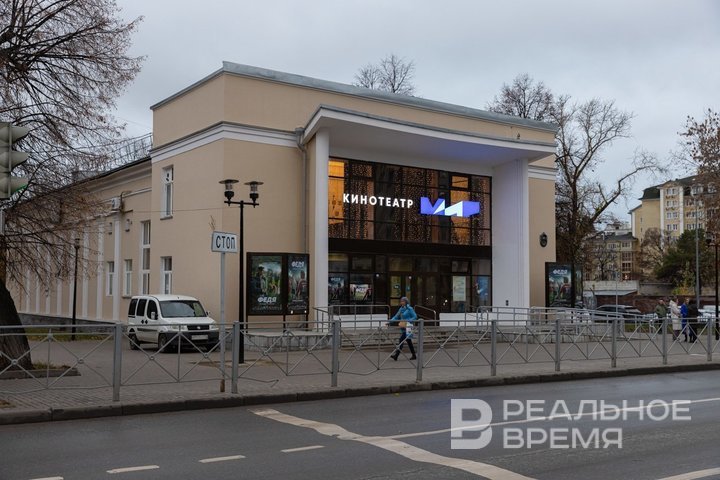Will Tatarstan’s cinemas be saved by a ‘symbiosis’ with fitness?
A record drop in attendance is forcing film distributors to explore unconventional ways out of the crisis

Facing the sharpest decline in cinema attendance in the past three years, Russia’s major film chains are searching for ways to reverse the trend. One such initiative was announced by Alexey Vasyasin, head of the merged cinema networks Cinema Park and Formula Kino, who revealed plans to lease part of their theatre spaces to Spirit fitness clubs to create a shared customer flow in a single location. This report by Realnoe Vremya explores how Tatarstan’s cinemas are coping with dwindling attendance, the new opportunities that could emerge from expanding their service offerings, and the potential impact of diversifying the traditional cinema business model.
No more movies? Audiences are disappearing?
In early 2025, Russian cinemas faced an unprecedented slump in attendance. Alexey Vasyasin, head of the Cinema Park chain, cited several key factors behind the decline in audience interest — notably the withdrawal of Hollywood films, a shrinking repertoire, and rising ticket prices. He also noted that property owners have begun to withdraw rental discounts for cinemas and are repurposing spaces for fitness centres and children’s entertainment zones. In response, his chain is planning to lease part of its premises to the Spirit fitness club network to house gym facilities.

This downward trend has been confirmed in Tatarstan — and particularly in Kazan — by data from the Unified Federal Automated Information System for Film Screenings (UAIS), which tracks cinema viewership across the country.
Since 2023, the number of cinema-goers has been steadily declining both in Kazan and across Tatarstan.
Interestingly, despite the drop in attendance, total box office revenue in the region has seen a slight increase — including per capita revenue on average across the republic. However, in Kazan specifically, the average amount spent per ticket has decreased.
Film distributors in pursuit of foot traffic
An expert consulted by Realnoe Vremya, Vladimir Shaikhiev, CEO of A-Development, confirmed the ongoing trend of downsizing cinema spaces, which are typically located in large shopping centres. He pointed out, in particular, the closures of cinemas in Suvar Plaza and Koltso, as well as the abandoned plans to open a cinema in the Mega shopping centre.

He noted that while fitness facilities can indeed boost overall foot traffic, what truly matters for shopping centres is targeted traffic — an influx of solvent consumers who are willing to spend money on-site. That means fitness offerings must be priced in line with the mall’s commercial goals. For instance, budget gyms that primarily attract students may not meet that criterion.
“Given the specific layout of cinema spaces, with their large auditoriums, it would make more sense to repurpose them for formats like theatrical performances. For example, in Kazan, there are small theatres like the Theatre on Bulak, which enjoys good attendance. I believe that such venues, with the right concept, could serve as a viable alternative to cinemas and still generate revenue,” he added.
State cinema is rescued by domestic films
The situation described above applies to commercial cinemas. However, the state-run film distribution company Tatarkino has told Realnoe Vremya that they have not felt any decline in interest or audience loss, despite the absence of Hollywood blockbusters from their lineup. According to Lilia Kashapova, the head of Film Production Support and Promotion at the GBUK RT Tatarkino, quality domestic films have successfully filled the gap, with growing audience interest. She also pointed out another important factor:

This was previously mentioned in an interview with Realnoe Vremya by Milyausha Aytuganova, Director of the GBUK RT Tatarkino. She specifically highlighted that the success of the film Kholop was largely due to the fact that, with a budget of 200 million rubles, 120 million was allocated for advertising. Similarly, the success of The Bremen Town Musicians, with a budget of over 1 billion rubles, was largely driven by a 500 million ruble advertising spend.

According to Tatarkino, the number of viewers at commercial screenings in municipal digital cinemas across the republic surpassed 271.7 thousand in 2024, showing little change compared to previous years (in 2022, these cinemas saw 309.5 thousand visitors). At the same time, total box office revenue increased: in 2021, viewers spent 15.8 million rubles, while in 2024, the figure rose to nearly 56.4 million rubles.
“Our branch in Bugulma-Leninogorsk-Bavly served 34.3 thousand viewers in 2022, and 37.8 thousand in 2024," said Lilia Kashapova. “Attendance at the MBU for cinema and video services in the Laishevo district was 3.4 thousand people in 2021, 1.73 thousand in 2022, 6.29 thousand in 2023, and 5.59 thousand in 2024.”